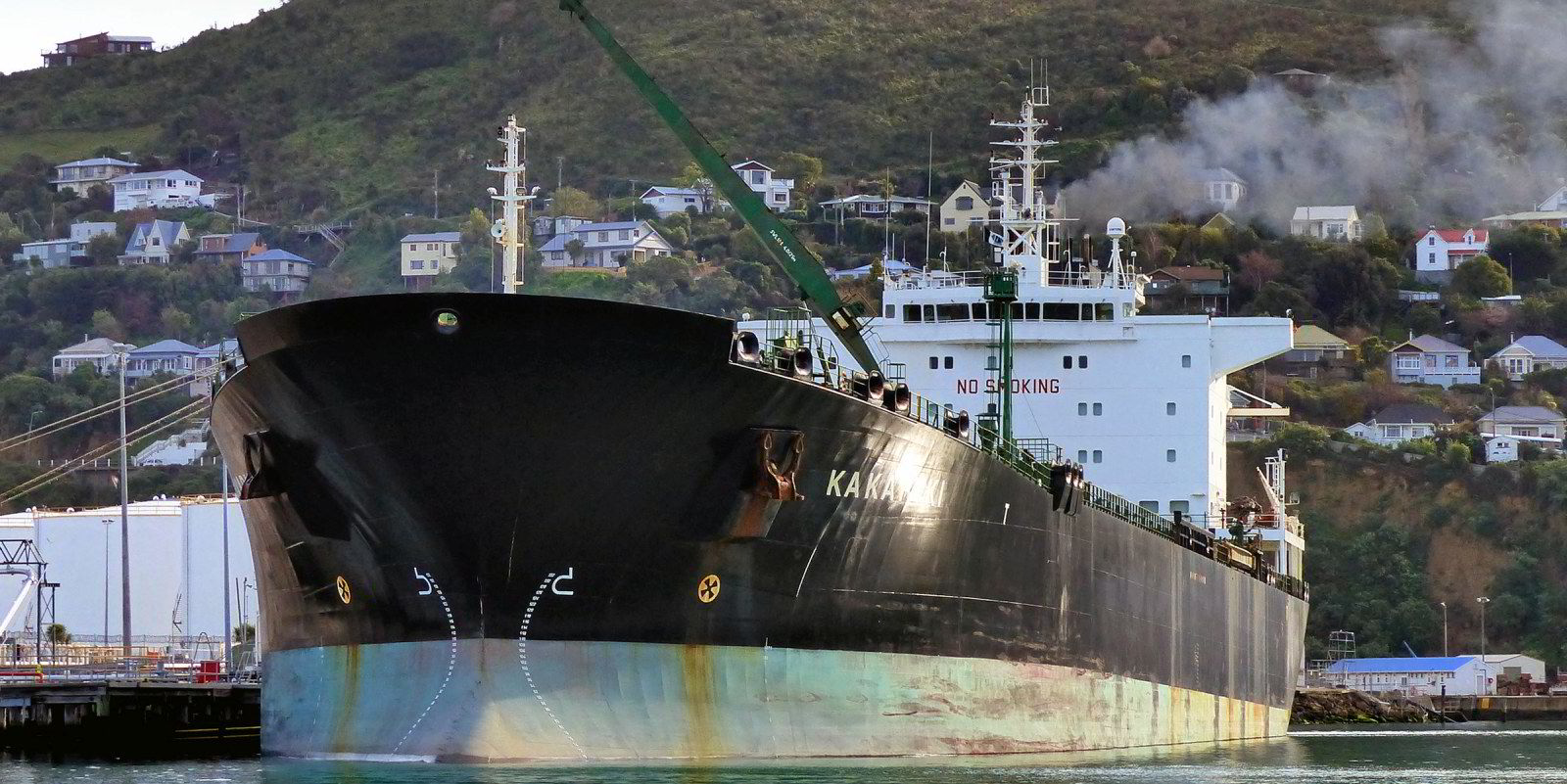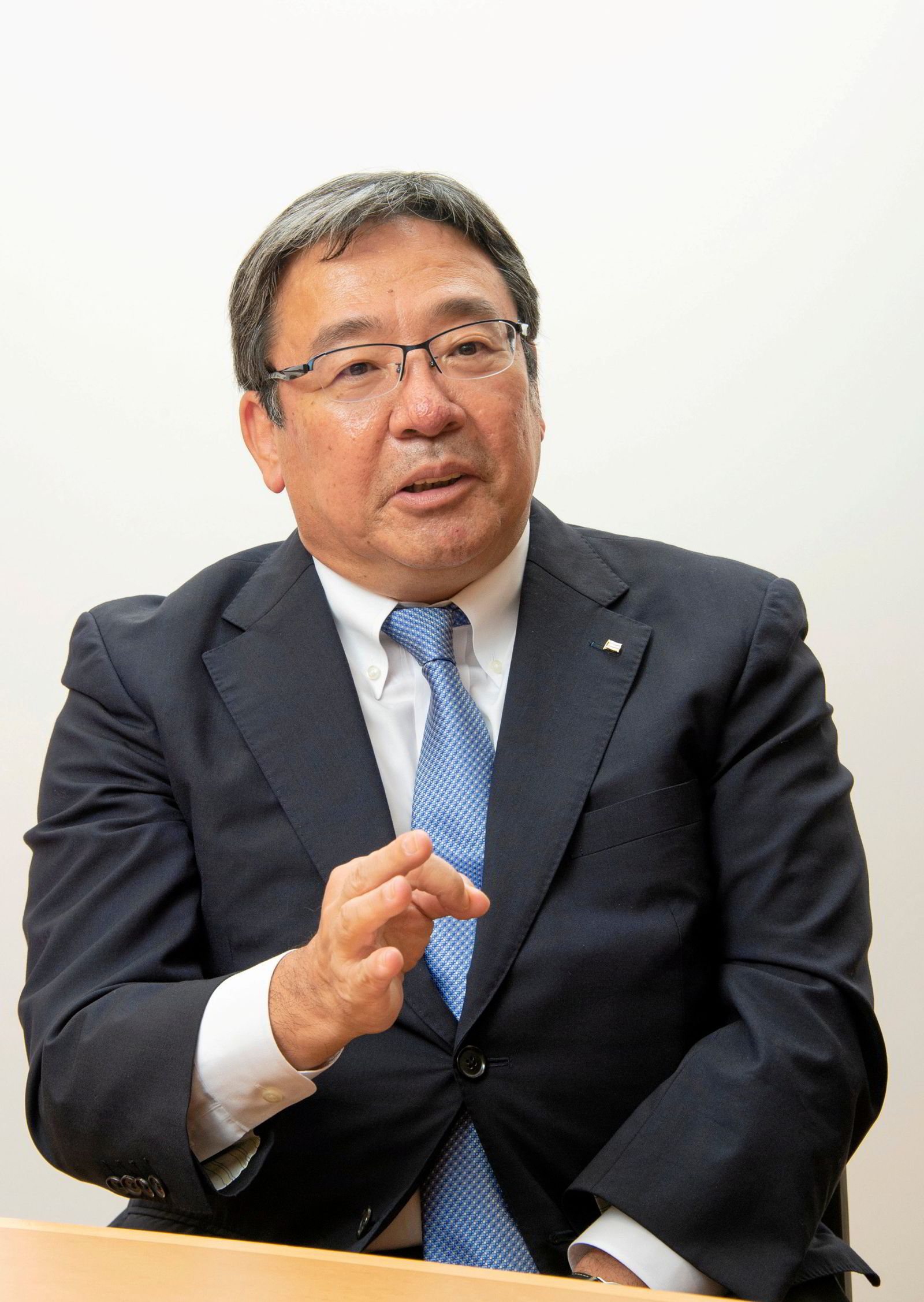
Shipping companies that are serious about ESG will need to do more to disclose their carbon emissions.
Photo: Rawpixel
14 December 2021
By Eric Priante Martin
in Stamford
This week's Green Seas newsletter focuses on what shipping companies are doing — or primarily what they are not doing — to disclose their greenhouse gas emissions. Subscribe at tinyurl.com/greenseas.
____________________________
The good news is that there is growing consensus that shipping needs to tackle its greenhouse gas emissions. The bad news is that precious few shipping companies are, by some measures, taking a leading role by disclosing their carbon footprint and what they are doing (if anything) about it.
TradeWinds has reported that the Carbon Disclosure Project (CDB) has given just two shipping companies an A in climate change leadership.

14 December 2021
By Eric Priante Martin
in Stamford
This week's Green Seas newsletter focuses on what shipping companies are doing — or primarily what they are not doing — to disclose their greenhouse gas emissions. Subscribe at tinyurl.com/greenseas.
____________________________
The good news is that there is growing consensus that shipping needs to tackle its greenhouse gas emissions. The bad news is that precious few shipping companies are, by some measures, taking a leading role by disclosing their carbon footprint and what they are doing (if anything) about it.
TradeWinds has reported that the Carbon Disclosure Project (CDB) has given just two shipping companies an A in climate change leadership.

Eric Priante Martin writes Green Seas every Tuesday.
Photo: Eric Priante Martin
If there is any consolation for shipping, it is that the industry is doing no worse than the broader list of companies, where just 2% of 12,000 made the non-profit group's A list.
And while most shipping companies got an F grade, it is not necessarily a reflection of poor performance but rather that they did not provide adequate answers to CDB, or any answers at all.
But engaging with organisations that provide third-party verification of environmental disclosures is key to doing more on decarbonisation than just talking about it and meeting the minimum standards from regulators.
The industry's uninspiring results in the CDP's climate leadership league table is a reflection of how much work needs to be done in shipping to provide robust disclosure of carbon emissions, both direct and indirect.
There is increasing pressure to provide stakeholders, including investors increasingly focused on environmental, social and governance (ESG) factors, with a map of their sustainability efforts.
First, the leaders at the moment: Japan's K Line and NYK Line both scored A on the CDB's rankings. They are not just talking about decarbonisation — they are getting their leadership verified.
These two companies are not just on the CDB's list. The Japanese duo are also the only shipping companies that have had their decarbonisation targets validated by the Science Based Targets initiative (SBTi).
SBTi, in which CDP is involved, is aiming to roll out new guidelines in the weeks ahead for shipping companies to set more ambitious targets to line up their well-to-wake emissions with the goal of capping climate change at 1.5C.

If there is any consolation for shipping, it is that the industry is doing no worse than the broader list of companies, where just 2% of 12,000 made the non-profit group's A list.
And while most shipping companies got an F grade, it is not necessarily a reflection of poor performance but rather that they did not provide adequate answers to CDB, or any answers at all.
But engaging with organisations that provide third-party verification of environmental disclosures is key to doing more on decarbonisation than just talking about it and meeting the minimum standards from regulators.
The industry's uninspiring results in the CDP's climate leadership league table is a reflection of how much work needs to be done in shipping to provide robust disclosure of carbon emissions, both direct and indirect.
There is increasing pressure to provide stakeholders, including investors increasingly focused on environmental, social and governance (ESG) factors, with a map of their sustainability efforts.
First, the leaders at the moment: Japan's K Line and NYK Line both scored A on the CDB's rankings. They are not just talking about decarbonisation — they are getting their leadership verified.
These two companies are not just on the CDB's list. The Japanese duo are also the only shipping companies that have had their decarbonisation targets validated by the Science Based Targets initiative (SBTi).
SBTi, in which CDP is involved, is aiming to roll out new guidelines in the weeks ahead for shipping companies to set more ambitious targets to line up their well-to-wake emissions with the goal of capping climate change at 1.5C.

Hitoshi Nagasawa-led NYK Line is proving to be a climate leader.
Photo: NYK Line
In accounting, the International Sustainability Standards Board (ISSB) is gearing up to play a central role for rules for disclosures that will be useful for shipping investors, though the rules proposed for the board to consider are based on existing standards.
But there are efforts underway to evolve those rules to potentially include disclosure for indirect scope 2 and scope 3 emissions.
There are other reasons for shipping to amp up climate disclosures. Private measures such as the Webber Research ESG Scorecard began looking at scope 2 emissions disclosures for US-listed companies earlier this year, finding that 19% of the outfits covered reported them.
And while the Poseidon Principles, an effort to work decarbonisation targets into ship finance, is currently focused on the International Maritime Organization's target to cut shipping's emissions by 50% by 2050, its leaders have signalled that it might get more ambitious.
That may include not only adopting a zero-carbon target before the IMO does, but also going beyond its Annual Efficiency Ratio (AER) as a metric for measuring emissions.
As momentum builds on these multiple layers of carbon disclosures, shipping companies that are serious about ESG will have to up their game and do more to measure and report their climate impact.(Copyright)
In accounting, the International Sustainability Standards Board (ISSB) is gearing up to play a central role for rules for disclosures that will be useful for shipping investors, though the rules proposed for the board to consider are based on existing standards.
But there are efforts underway to evolve those rules to potentially include disclosure for indirect scope 2 and scope 3 emissions.
There are other reasons for shipping to amp up climate disclosures. Private measures such as the Webber Research ESG Scorecard began looking at scope 2 emissions disclosures for US-listed companies earlier this year, finding that 19% of the outfits covered reported them.
And while the Poseidon Principles, an effort to work decarbonisation targets into ship finance, is currently focused on the International Maritime Organization's target to cut shipping's emissions by 50% by 2050, its leaders have signalled that it might get more ambitious.
That may include not only adopting a zero-carbon target before the IMO does, but also going beyond its Annual Efficiency Ratio (AER) as a metric for measuring emissions.
As momentum builds on these multiple layers of carbon disclosures, shipping companies that are serious about ESG will have to up their game and do more to measure and report their climate impact.(Copyright)
More sustainability stories
AP Moller-Maersk has provided a sneak peek of the methanol-fuelled container ship that it describes as carbon-neutral. Read the story in TradeWinds.
Siemens Gamesa has started work to develop piping for a new breed of offshore wind turbines that will pump green hydrogen rather than electrical power. Read the story in Recharge.
The UK port city of Southhampton could become a hydrogen hub under plans being mulled by ExxonMobil. Read the story in Upstream.
No comments:
Post a Comment